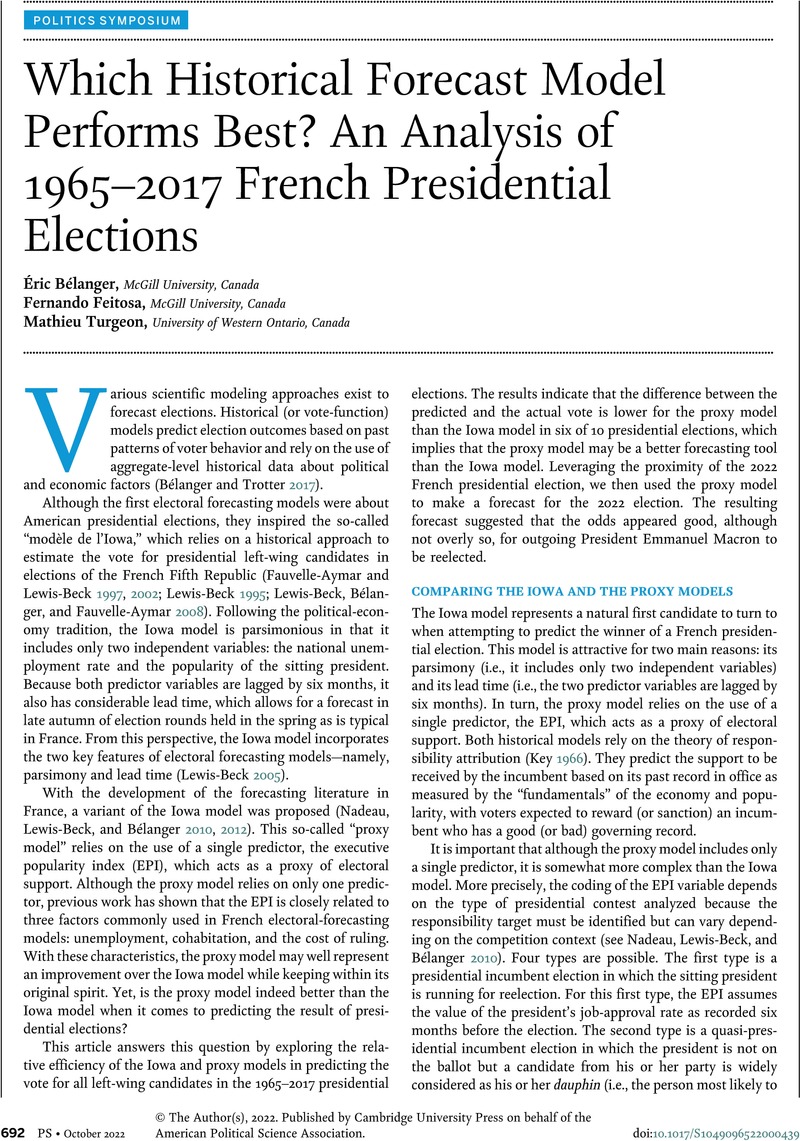Crossref Citations
This article has been cited by the following publications. This list is generated based on data provided by Crossref.
Mongrain, Philippe
2022.
Predicting in an (increasingly) unpredictable system? Forty years of election forecasting in France.
French Politics,
Vol. 20,
Issue. 2,
p.
210.



